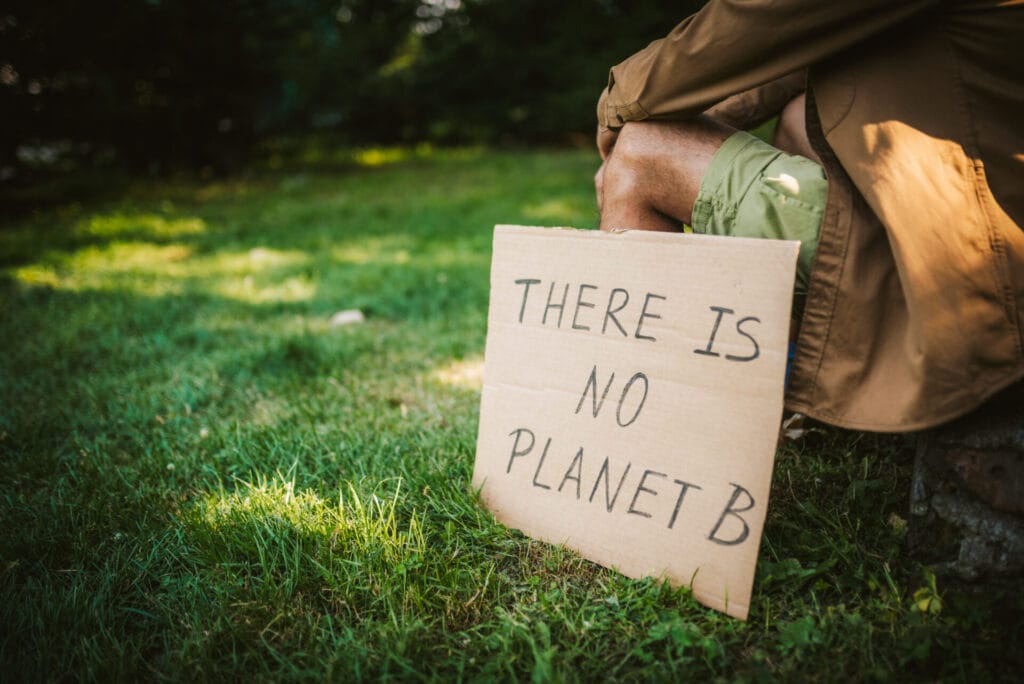GLAAD has documented the history of Donald Trump on LGBTQ issues, including his policies and promises to curtail climate change efforts. The full anti-LGBTQ record is available on GLAAD’s Trump Accountability Tracker. Climate change is a top issue for LGBTQ voters according to GLAAD’s poll.
Climate change and its effect on the LGBTQ community:
According to the findings of a report by The Williams Institute at UCLA School of Law, climate change “exacerbates existing disparities among individuals and communities.” LGBTQ people, specifically same-sex couples:
- face greater risk “to the negative effects of climate change” compared with non-LGBTQ individuals.
- disproportionately live in coastal regions or areas at risk due to climate change.
- are more likely to live in areas with poor infrastructure and access to vital resources.
- are more likely to be “overlooked in local and national relief efforts,” especially in communities where religious-affiliated organizations often.
In examining the report, Legal Planet cited “extreme weather events” such as 2005’s Hurricane Katrina as proving not only deadly and costly to affected communities, but also on a more granular level, the LGBTQ people who lived within them:
- LGBTQ people and families “were often overlooked in local and national relief efforts” they noted. “Some LGBTQ families faced separation during resettlement. Many more people struggled to apply for relief aid, especially because churches and religiously affiliated organizations so often provided the relief.”
Trump’s climate change record includes:
- diminishing the severity of climate change by frequently calling it a “hoax.”
- weakening or wiping over 125 environmental rules and policies from 2016-20.
- increasing reliance on fossil fuels.
- Trump’s Supreme Court nominees have also ignored calls for climate change protections by:
- overturning Chevron, USA Inc. v. Natural Resources Defense Council, which will make it more difficult for executive branch agencies to combat climate change, and will introduce the threat of legal challenges.
- temporarily blocking the Environmental Protection Agency’s (EPA) “good neighbor” rule following challenges from Ohio, Indiana, and West Virginia. The rule would have curtailed air pollution in several states.
- cutting back the EPA’s “ability to regulate wetlands under the Clean Water Act” by more than fifty percent.
- Trump Supreme Court nominee Amy Coney Barrett’s father, Michael Coney, has ties to big oil, and was a member of the American Petroleum Institute for more than 20 years.
Trump has recommitted to reversing environmental protections:
- promising top oil execs he would “immediately reverse dozens of President Biden’s environmental rules and policies and stop new ones from being enacted” if they contribute $1 billion to his reelection bid.
- rolling back key efforts to promote electric vehicles and clean energy production.
- withdrawing from the The Paris Agreement, which was adopted in 2015 to combat climate change. This would mirror Trump’s actions during his 2016-20 presidency, which President Biden overturned after winning the White House.
Trump’s current position on climate change:
- If reelected, Trump would “hit rewind” on President Biden’s actions to combat climate change (which, in turn, President Biden has done the same with regard to Trump’s 2016—20 term). At the same time, he claimed at the June 27 Presidential Debate his four years in the White House led to “the best environmental numbers ever.” The reality is that federal laws protecting air and water quality have been in effect for decades, but Trump used his presidential power to roll back environmental protections.
Trump’s administration in his one-term presidency was filled with activists from the anti-LGBTQ national organization Heritage Foundation. Heritage and others have created “Project 2025,” which aims to:
- Rewind actions the Biden administration has taken to reverse climate change rollbacks by former President Trump.
- Repeal efforts to provide “funding and tax incentives for corporations and communities” that switch to renewable energy.
Downsize federal agencies that include the National Oceanic and Atmospheric Administration (NOAA). NOAA’s offices “form a colossal operation that has become one of the main drivers of the climate change alarm industry.”
GLAAD’s Voter Poll shows:
- The environment and climate change are a leading concern. Twenty-one percent of respondents indicated it is one of the two most important issues candidates must address.
- Fear that Republican control of the White House and Senate, as well as a conservative-leaning Supreme Court, could have “lasting implications for generations to come” (86% likely).













